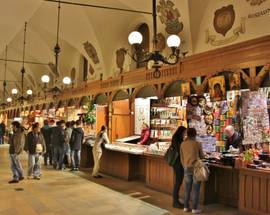SobieskiSavedEurope
Gold Member
- Thread starter
- Banned
- #361
me? you started this thread and made this claim dumbassWhy don't you prove it?
I originally said Poles probably have more battle wins when outnumbered, than anyone.
I think I proved that point.
I proved that Poles have at least 3 battles similar to Spartan's famous battle of Termopylae.
Being the Battle of Hodow in 1694, the Battle of Trembowla in 1675, and the Siege of Kamanets of 1672.
That's actually more than Sparta, and the full list I posted actually contained more Polish victories when outnumbered than the number of battles Sparta even took place in, actually.
You mention Nazi Germany, which didn't even have many battles when seriously outnumbered.
In fact in the Battle of Stalingrad in 1942 Soviet Russia with a similar number had turned around, and started winning the war.
Napoleon had some somewhat impressive wins like the Battle of Jena- Auerstäd in 1806, Battle of Aspern-Essling in 1809, or Battle of Dresden in 1815, but these are clearly dwarfed by Poland's victories when outnumbered.
But, why don't you prove, otherwise, then?
You have some awfully small battles in there, and a win is not defined. Was the enemy simply discouraged? were they killed or captured? There would be at least that many small battles on the eastern front in 41-45, so there needs to be a better definition.
In some Battles Poles killed, and captured bigger numbers of the enemy than they had Poles.
In the Battle of Kircholm in 1605 3,600 Poles beat 10,800 Swedes, capturing, killing, and dispersing 8,000 Swedes.
In the Battle of Komarow in 1920 1,700 Poles beat 17,500 Soviets, killing 4,000 Soviets.
In the Battle of Obertyn 6,000 Poles beat 17,000 Moldavians, killing 7,000 Moldavians.
In the Battle of Kumeyki 4,000 Poles beat 18,000 Cossacks, killing 6,000 Cossacks.
In the Battle of Wizna in 1939 800 Poles held off 42,000 Nazi Germans, killing 900 Germans.
In the Battle of Zadworze in 1920 330 Poles held off 17,000 Soviets, killing 600 Soviets
In the Battle of Hodow in 1694 400 Poles beat 40,000 Tatars, killing 2,000 Tatars.me? you started this thread and made this claim dumbassWhy don't you prove it?
I originally said Poles probably have more battle wins when outnumbered, than anyone.
I think I proved that point.
I proved that Poles have at least 3 battles similar to Spartan's famous battle of Termopylae.
Being the Battle of Hodow in 1694, the Battle of Trembowla in 1675, and the Siege of Kamanets of 1672.
That's actually more than Sparta, and the full list I posted actually contained more Polish victories when outnumbered than the number of battles Sparta even took place in, actually.
You mention Nazi Germany, which didn't even have many battles when seriously outnumbered.
In fact in the Battle of Stalingrad in 1942 Soviet Russia with a similar number had turned around, and started winning the war.
Napoleon had some somewhat impressive wins like the Battle of Jena- Auerstäd in 1806, Battle of Aspern-Essling in 1809, or Battle of Dresden in 1815, but these are clearly dwarfed by Poland's victories when outnumbered.
But, why don't you prove, otherwise, then?
4) If all you care about is quantity regardless of type of battle, or length of time, China has a longer recorded history than poland, do you have that list?
China was for a very long time the biggest country in the World in population.
Poland's just a country that started off wedged between bigger Germans, and East Slavic states like Kievan Rus, or then Russia.
Poland's lands are very vulnerable, because they're mostly flat plains, not rugged mountains, or protected by any kind of water.
Poland did exceedingly well.
In 1000 AD Poland had just over 1 million in population, the German Holy Roman Empire of over 7 million, and the East Slavic Kievan Rus of over 7 million both attack Poland, and failed.
In the German - Polish 1002 - 1018 War, Germany proved to be a complete embarrassment.
Much smaller Poland beat not just the much bigger Germans, but whom Germans had help from Czech Bohemians, and Italian Venetians, and whom Germans gave Poland Lusatia in the Peace of Bautzen in 1018.
Then
Poland summoned small bands of Germans, Hungarians, and Czechs, invaded the Kievan Rus, and captured Kiev the capital of Kievan Rus in 1018. in the Kiev Expedition against Kievan Rus.
The fact that a much smaller country actually could stand toe to toe with such bigger countries like Poland had, says something.
me? you started this thread and made this claim dumbassWhy don't you prove it?
I originally said Poles probably have more battle wins when outnumbered, than anyone.
I think I proved that point.
I proved that Poles have at least 3 battles similar to Spartan's famous battle of Termopylae.
Being the Battle of Hodow in 1694, the Battle of Trembowla in 1675, and the Siege of Kamanets of 1672.
That's actually more than Sparta, and the full list I posted actually contained more Polish victories when outnumbered than the number of battles Sparta even took place in, actually.
You mention Nazi Germany, which didn't even have many battles when seriously outnumbered.
In fact in the Battle of Stalingrad in 1942 Soviet Russia with a similar number had turned around, and started winning the war.
Napoleon had some somewhat impressive wins like the Battle of Jena- Auerstäd in 1806, Battle of Aspern-Essling in 1809, or Battle of Dresden in 1815, but these are clearly dwarfed by Poland's victories when outnumbered.
But, why don't you prove, otherwise, then?
The person making the claim has the burden of proof. It is pretty simple, I am not going to do your homework little boy.
You have some awfully small battles in there, and a win is not defined. Was the enemy simply discouraged? were they killed or captured? There would be at least that many small battles on the eastern front in 41-45, so there needs to be a better definition.
Defensive battles are much easier than offensive wins against superior numbers. Forts, trenches, static positions etc. are all force multipliers. Anybody can turtle in to a fort and hold off 20th century russians for a while. Battles of maneuver in the open are much more difficult than holding down a fort. Set piece battles are different than battles with tactical surprise. Was the battle on home soil or far off with a long logistical chain?
It is way more complicated than you make it out to be, and no, Nazi Germany was almost always outnumbered over the eastern front, it is pretty much how they were worn down and beat. Stalin himself said quantity has a quality all its own, and that is how he won.
1) open battles of maneuver with forces greater than 5,000 for each side, can you parse out those?
2) Static defense is not impressive unless at least 6 to 1 and you force the enemy to go home or better yet you capture or kill all of them. So lets look at those seperately, can you make that list?
3) Obviously Polacks are not great at war all the time, and adding up all Polish battles ever to those of R.E. Lee isn't fair because Lee didn't live 1000 years. So if play by your rules then we must account for every battle ever fought by all Americans when out-numbered, like la drang, bastanonge, etc. and compare to a 200 year period in poland, or go leader versus leader.
4) If all you care about is quantity regardless of type of battle, or length of time, China has a longer recorded history than poland, do you have that list?Battle of Kletsk 1506 7,000 Poles beat 20,000 Tatars.
Battle of Obertyn 1531 5,000 Poles beat 17,000 Moldovians.
Battle of Lubieszow 1577 2,000 Poles beat 12,000 Germans.
Battle of Wenden 1601 700 Poles beat 3,000 Swedes.
Battle of Kircholm 1605 3,000 Poles beat 10,000 Swedes.
Battle of Klushino 1610 6,000 Poles beat 35,000 Russian + Swedish forces.
Battle of Khotyn 1621 60,000 Poles beat 150,000 Ottoman Turks.
Battle of Martynow 1624 5,000 Poles beat 15,000 Tatars.
Siege of Azbarazh 1647 10,000 Poles held off 140,000 Cossack + Tatar forces.
Battle of Bila Tserkva 1651 12,000 Poles beat 50,000 Cossack + Tatar forces.
Siege of Jasna Gora 1655. 310 Poles beat 3,200 Swedes.
Battle of Podhajce 1667 3,000 Polish soldiers, and 6,000 Polish villagers, beat 20,000 Tatars, 15,000 Cossacks, and 3,000 Turkish Janissarries.
Battle of Kamenets 1672 1,500 Poles held off 80,000 Ottoman Turks for 9 days.
Battle of Trembowla 1675 300 Poles held off 30,000 Turks for a month.,
Battle of Hodow 1694 400 Poles beat 40,000 Tatars.
Wilno Uprising 1794 1,500 Poles held off 8,000 Russian forces.
Warsaw Uprising 1794 3,000 Poles beat 8,000 Russian forces.
Battle of Fuengirola 1810 400 Poles beat 3,500 British, and 1,000 Spanish forces.
Battle of Olszynka Grochowska in 1831 36,000 Poles beat 60,000 Russians.
Battle of Kostiuchnowka 1916 5,500 Poles beat 13,000 Russians.
Battle of Komarow 1920 1,700 Poles beat 17,500 Soviets.
Battle of Zadworze 1920 300 Poles tactical Polish victory despite losing against 17,000 Soviets of the First Cavalry Division.
Battle of Wizna 1939 700 Poles held off 42,200 German Nazis for 3 days.
that is only half the answer, now show nobody else has as many over that time span
So he provides one list for you, but that's still not enough. You demand yet another list? Who do you think you are? Someone important or something? Nobody has to "prove" anything to you. If you want to disprove his claims, then go ahead and do it.
take a logic class dumbass? If I say Americans have the most of something, I have to show how much the others have. If you don't get that, then go F yourself.
No, nobody here has to prove anything, I already told him that if he just wants to make empty claims then I don't give a shit. If he wants to make substantive claims, then he does have to prove it.
I posted the list of Polish wins when outnumbered, or Polish holding off much bigger forces for extended periods.
YOU claimed Nazis, General Lee, or Sparta may have done more.
But, YOU DID NOT bring up evidence for your claim then.... Mega- Hypocrite.
Lazy, nitpicking, jerk.
Lee didn't 'hold off' Lee attacked when he could, victories of offensive maneuver are far more impressive than folks turtling into a fort. Audie Murphy held off something like an entire German Battalion, all by himself, so it isn't something only poles can do, anybody can. You didn't segregrate battles by type, something that should be done when looking at military acheivement of this sort.
/QUOTE]
I already listed almost all of Lee's Battles, doof.
I proved they weren't outnumbered so much like many battles Poles were in.
In fact, I pulverized your claim that Lee was always outnumbered.
I can't even find Audie Murphy's holding off a German Battalion?
You made the claim, by your own logic, you should bring up the evidence for it















